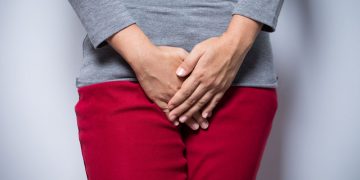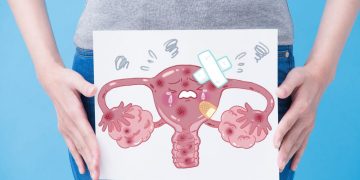Normal and satisfactory pooping in the morning is what makes the rest of the day happy and peaceful. If you have difficulties in your pooping routine, it can negatively impact on your mood and make you more stressful. Our improper lifestyle and bad food habits invite problems with the digestive system and the way it functions. Several factors are cited as reasons for our bad health.
Our digestive system plays a very vital role in our overall well being. When your digestive system functions well, it ensures the wellness of all other organs in your body. Problems in digestive system will directly impact your pooping habits. Sometimes it can even lead to constipation. When there is difficulty in pooping due to an issue present in the bowels or intestines (both small and large), it is called as Irritable Bowel Syndrome.
So what is this Irritable Bowel Syndrome, what are its symptoms, why it occurs, who can fall victims to this problem? We will look into answers to this questions in this article.
Irritable Bowel Syndrome (IBS)
In brief, it is a problem that occurs in the bowels. It can lead to irritation, pain, swelling in the anus and colon region. It won’t be severe. Instead, it will be a long-term problem.
How long it takes to detect this problem?
A person with IBS will have uncomfortable feel while pooping. This feeling can last for up to three months. In particular, it can last continuously for three days in a month. It is one of the significant symptoms of Irritable Bowel Syndrome.
What are the main reasons?
- Improper functioning of large and small intestines
- Pain in the anus during the release of gas or poop
- Consuming sweet and acid-rich foods
- Problems in the stomach, or bacterial infections in the gut.
- Stress and anxiety
- Changes in hormone secretion or Hormone imbalance
- Increase in the number of bacterias present in small intestines
What are the primary symptoms?
- Severe stomach pain
- Swelling in the stomach region
- Problems with pooping or constipation
- Increased gastric trouble
- Swelling in lower abdominal region
- Sprain in the regions that surrounds the stomach
- Lack of interest towards food
- Pain in the right side of the upper abdomen
Can IBS happen due to other health problems?
Yes, IBS can happen alongside other health problems, which includes.
- Problems due to indigestion
- Stomach and colon cancer symptoms
- Kidney stones, and problems in kidneys
- Presence of high levels of toxins in the intestines
- Lack of fiber content in the food and body for the digestion to proceed normally
Are the symptoms of Irritable Bowel Syndrome same for everyone?
No, there are three types of IBS
Irritable Bowel Syndrome with Diarrhea (IBS-D): This type of IBS will lead to irritation, pain, and swelling in the anus, frequent urge to poop, the absence of satisfactory feeling after pooping, nausea, gastric trouble, stomach pain, sudden urge to poop.
Irritable Bowel Syndrome with Constipation (IBS-C): This type of IBS can cause irritation, and pain in anus area, constipation, pain upon releasing the poop, lack of satisfaction after pooping, severe stomach pain, sprain accompanied by gastric trouble, swelling in the anus.
Irritable Bowel Syndrome with alternating constipation and diarrhea (IBS-M): It can lead to severe diarrhea or constipation, accompanied by irritation, pain, and swelling in the anus.
How is it treated?
There are no specific medications that cure or treats IBS directly. However, it can be treated with changes in food habits, lifestyle, and through taking proper care of the mental health.
What are the changes in food habits that bring down IBS?
Fibre-rich fruits and vegetables must be regularly included in the daily diet. Fat rich foods should be avoided completely or to be taken in minimal quantity. Whole grains and carbohydrate-rich foods should be consumed in high quantities. Probiotics should occasionally be taken to improve digestion.
What are the foods that should be avoided?
- Fat rich foods
- Dairy foods or dairy products that slow down digestion
- Tea and coffee
- carbohydrate rich drinks
- Caffeine and alcohol rich drinks
- Spicy foods
- Deep fried foods
- Packaged foods with preservatives, artificial flavor enhancers, and artificial colorants
- Beans, cabbage and other vegetables that increase the chances of gastric trouble.
What are the ways to prevent IBS?
- Planned and well-balanced diet is a must. Foods must be consumed at the right time.
- Smoking cigarettes should be stopped completely.
- Drinking enough water to ease digestion process.
- Practising yoga, meditation, and other exercises that ensure good mental health.
- Avoiding foods that induce digestion problems.
Who can become a victim of IBS?
- People with a long history of smoking habit
- Those who drink a lot of coffee
- People who are continuously depressed and stressed
- People with sexual problems
- People with wrong and improper food and eating habits








